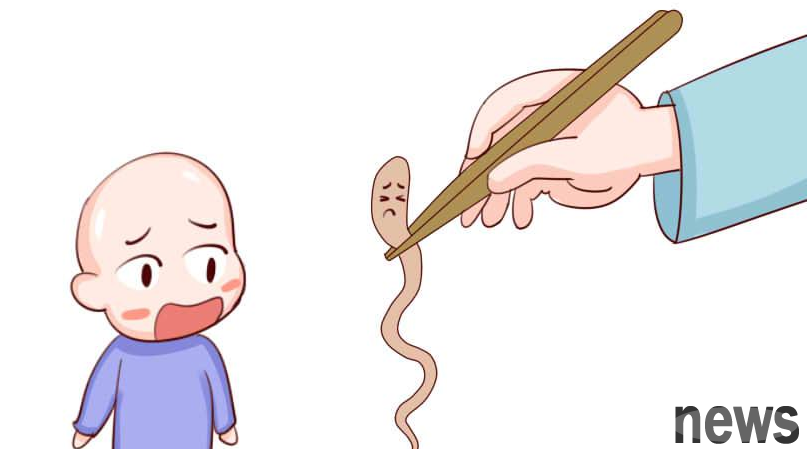"The child always has secretions in his eyes, but he didn't expect that the insects would crawl out." A few days ago, a 2-year-old boy was seeking treatment at the Aier Eye Hospital affiliated to Wuhan University, the doctor actually "catched" six living insects from his eyes.

Xiaoyu (pseudonym), 2 years old this year, has been constantly overflowing secretions in his left eye for the past three months.
At first, Xiaoyu's parents thought there was inflammation in their children's eyes. But after careful observation of Xiaoyu's mother, she found that there were several white "thin filaments" swimming in the child's eyes. The frightened parents quickly sent their children to the Aier Eye Hospital affiliated to Wuhan University.
After receiving the treatment, the emergency doctor opened Xiaoyu's eyelids and conducted a careful examination. As a result, the doctor found some white heads deep between Xiaoyu's upper eyelid and eyeball (at the upper dome conjunctiva). And, what is terrifying is that these "heads" are still squirming. The insects taken out of
are all milky white and about 1 cm long. "The body is slender, milky, translucent, and parasitized in the eyes."
Dr. Chen Xiangxi, deputy chief physician of the Ophthalmology and Cornea Department of Aier Eye Hospital Affiliated to Wuhan University, said that this is a conjunctiva sucking nematode. "It is likely that it is too close to cats and dogs, or that they rub their eyes without washing their hands after touching them." After learning that Xiaoyu often plays with cats and dogs in his neighbor's house, Director Chen Xiangxi explained that conjunctival sucking nematode infection is mostly in summer and autumn, and fruit flies are the main intermediate host and transmission vector of conjunctival sucking nematodes. The source of infection is mainly the final host dog, followed by cats, rabbits and other animals. Fruit flies eat the conjunctiva of infected animals, and the larvae are sucked into the intestines by the fruit flies with tears. When the fruit flies bite the human eye again, the larvae enter the human eye and grow into adults.
After removing the worm with microtweezers, the doctor rinsed the child's eyes and took medicine.
"Once the conjunctiva sucking nematode enters the human eye, the person will start to feel uncomfortable in the eyes, with foreign body sensation, itching, and tingling, and the secretions in the eyes become more common. However, if not treated in time, the insects stay in the eyes for too long, and frequent rubbing of the eyes may cause corneal ulcers and affect vision."
Director Wu Shangcao, deputy chief physician of the Ophthalmology and Cornea Department of Aier Eye Hospital Affiliated to Wuhan University, reminds: This disease is a parasitic disease that is zoonotic, and is more common in children. Parents should educate their children to keep an appropriate distance from domestic pets, pay attention to hygiene, wash their hands frequently, and do not rub their eyes. If they find abnormal symptoms and signs of children's eyes, they must seek medical treatment in time.